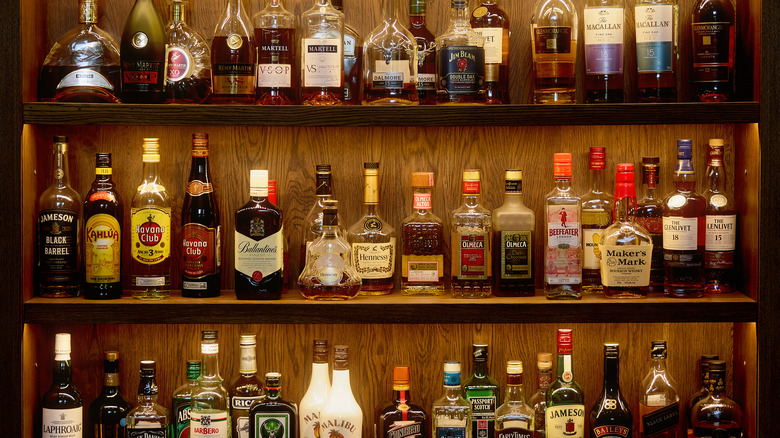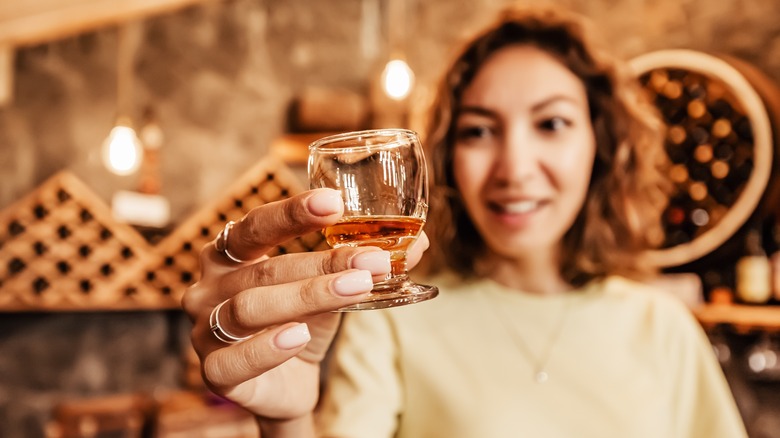How Long Can You Store Distilled Liquors?
For many distilled liquor enthusiasts, building out the perfect collection of spirits is a lifelong goal. When you find a coveted bottle, you may be tempted to hang on to it for as long as possible, savoring sips along the way. If you are in the habit of saving your special liquors for years and years, however, you may start to wonder if they will ever expire — and, if so, how long they can be expected to last before they do. Read on to find the answer to this question, as well as advice for how to keep your distilled liquors — like whiskey and gin — at their peak quality for as long as possible.
Distilled liquors have a high alcohol content and low sugar content and for these reasons they are extremely shelf stable when unopened. A properly stored bottle of whiskey, for example, can last almost indefinitely, which is likely why you've seen the same one on your grandfather's mantle for decades. Once opened, these spirits don't necessarily spoil in the traditional sense — that is to say, they won't make you sick — but they do decline in quality. At some point between one and three years after opening, the liquor will begin to change in flavor, making it noticeably less pleasant.
How to store distilled liquors
The way in which you store your spirits will impact how long you will be able to extend their lifespan. The three factors that degrade liquor quickly are heat, light, and exposure to air. As such, it is important to keep your liquor in an airtight container in a cool space and away from as much sunlight as possible. Unlike wine, it is also best to store bottles of distilled liquor upright, so there is no need to invest in a special rack — just placing it on a shelf or a bar cart will serve just fine.
Since hard liquor doesn't show the usual signs of spoilage, it can be harder to tell when a bottle has crossed the line into having gone bad. The primary indicators will be a change in, or total loss of, the smell and taste that makes these spirits such a special drinking experience. You can also keep an eye out for a change in color or the appearance of sediment within the liquid. Even with these traits, the liquor will still be technically drinkable, though you may not enjoy it much. For ideas on how to use up your distilled liquors before they reach this point, check out our list of gin cocktails or some drinks to try if you like whiskey sours.

